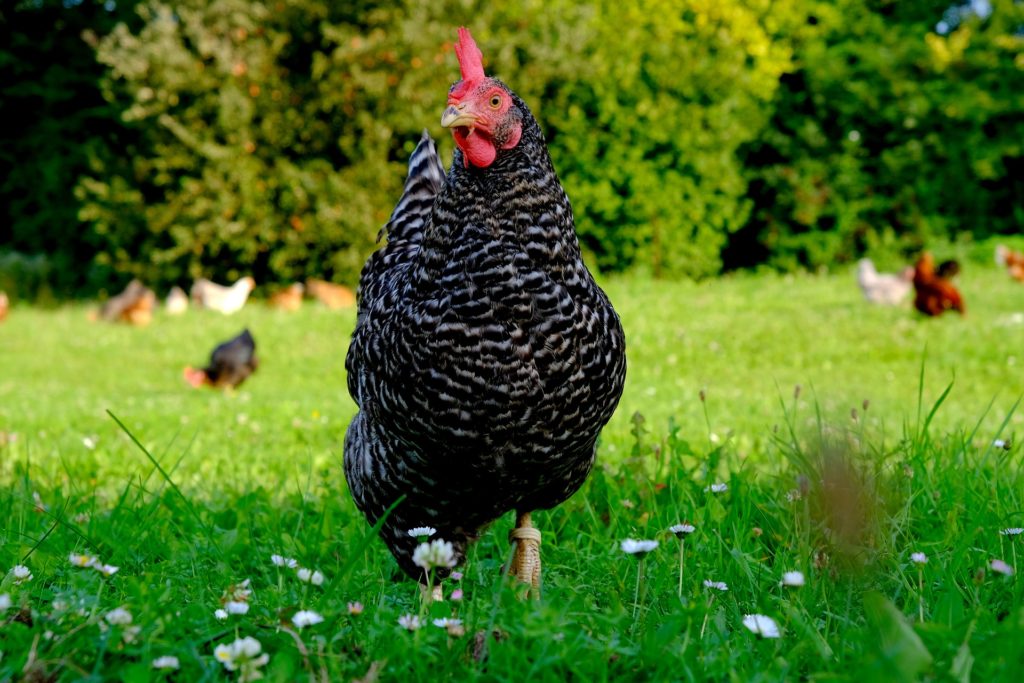It is not all that often that agricultural issues make their way before the Justices of the United States Supreme Court, but recently two lawsuits were filed in the High Court involving state laws governing egg production.

Background
In 2008, California voters passed Proposition 2, the “Prevention of Farm Animal Cruelty Act,” which mandated minimum cage sizes (116 square inches of floor space per chicken) for egg farms in the state of California. The regulations were intended to allow hens to lie down, stand up, turn around, and fully extend their limbs. The regulations went into effect in 2015. The law also prohibited the use of gestation crates for swine and solo housing for dairy calves. In 2010, amid concerns that California egg farmers would be at a competitive disadvantage due to the additional costs required to comply with these new regulations, the California Legislature went a step further, passing a law that required all eggs sold in California comply with the cage-size requirements included in Proposition 2, regardless of the laws in the state where the eggs were produced.
In 2016, Massachusetts passed similar laws. Voters passed a ballot initiative requiring that all eggs sold in the state be from hens raised in cage-free environments by 2022. Additionally, the initiative prohibits the sale of pork and veal if the state’s regulations related to gestation crates and calf facilities are not followed.
Litigation
Lawsuits have been filed challenging both the California law and the Massachusetts law. Because the lawsuits involve claims between states, the plaintiff states claim that the United States Supreme Court has original jurisdiction–meaning that plaintiffs do not have to file in lower courts, but instead can file directly with the Supreme Court.
The lawsuits claim that both the California and Massachusetts laws violate the Commerce Clause of the United States Constitution. As Steve Marshall, Alabama Attorney General explained, the lawsuits are “challenging attempts by California and Massachusetts to impose their agricultural restrictions on farmers in other states, including Alabama.” Thus, the plaintiff states do not challenge the right of California and Massachusetts to pass laws governing agricultural practices in their own states, but the concern is that these laws go a step further and attempt to govern agricultural practices in all states by prohibiting the sale of products that do not comport with the California and Massachusetts laws.
The lawsuit challenging the California law, State of Missouri v. State of California, was filed by the following states: Alabama, Arkansas, Indiana, Iowa, Louisana, Missouri, Nebraska, Nevada, North Dakota, Oklahoma, Texas, Utah, and Wisconsin. The plaintiff states claim that egg prices have increased since the law went into effect in 2015, costing consumers an additional $350 million to date due to an increase in egg prices of 1.8%-5.1%. According to Missouri Attorney General Josh Hawley, the California egg law is “a clear attempt by big-government proponents to impose job-killing regulations” on other states. [Read Complaint against California here.]
Previously, the US Court of Appeals for the Ninth Circuit rejected similar claims against the California law filed by six states, finding that the states lacked standing as they could not show harm beyond individual farmers. [Read Opinion here.] In this new lawsuit, filed under original jurisdiction at the US Supreme Court, the plaintiff states’ claims also allege harm to consumers due to the increased egg prices.
The lawsuit challenging the Massachusetts law was filed by Alabama, Arkansas, Louisiana, Missouri, Nebraska, North Dakota, Oklahoma, South Carolina, Utah, West Virginia, and Wisconsin. [Read Complaint against Massachusetts here.]
Key Take Aways
These cases involve an interesting issue that is not likely to go away anytime soon. More frequently, animal rights groups are turning to ballot initiatives to get laws passed related to animal rights and welfare. These ballot initiatives can create non-uniform standards between states, which could essentially require agricultural producers to comply with the strictest state’s rules in order to sell their product nationwide. This could result in increased costs for producers and consumers alike. Will the US Supreme Court agree that it has original jurisdiction and how will the Court rule? Time will tell.












